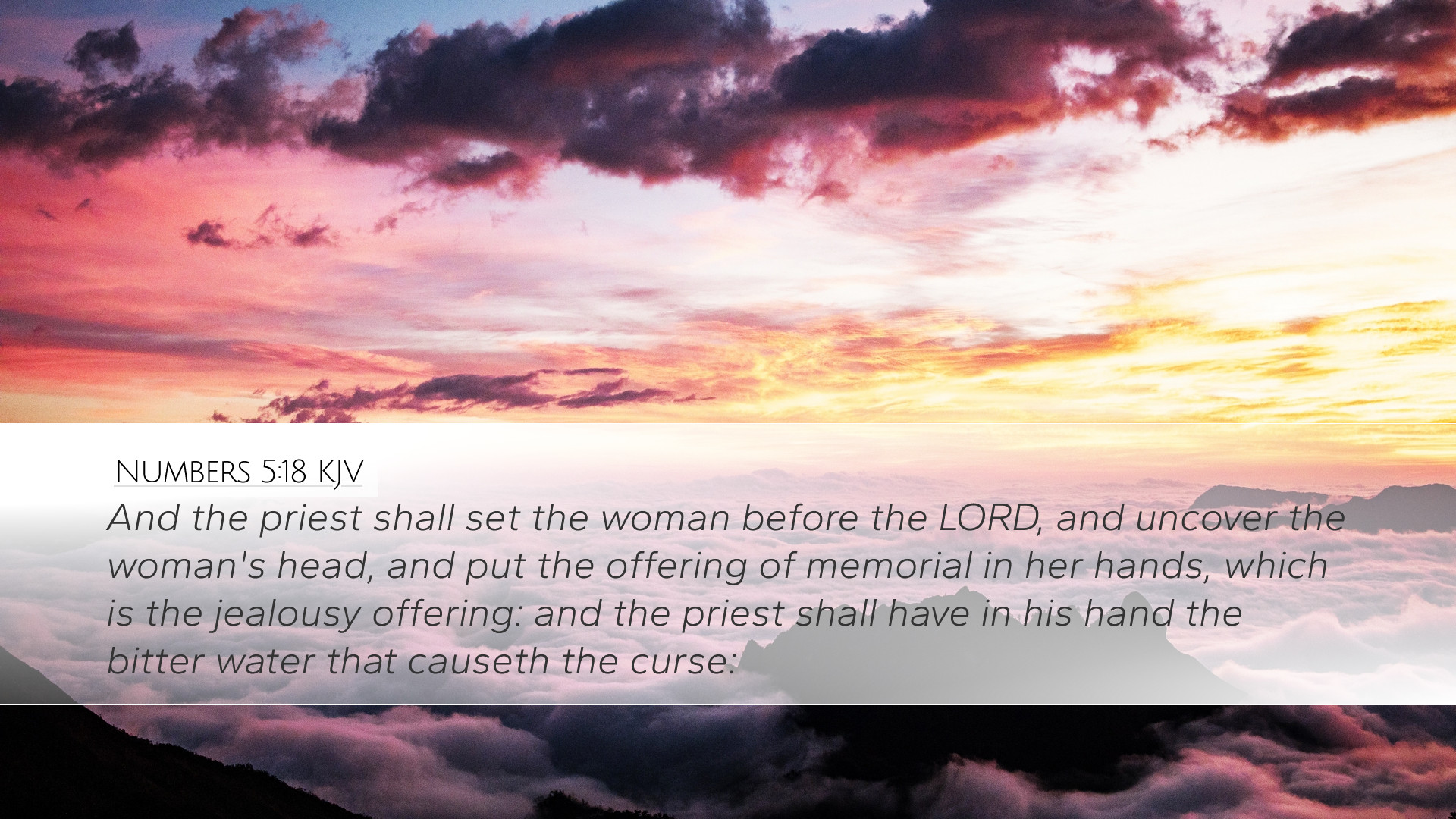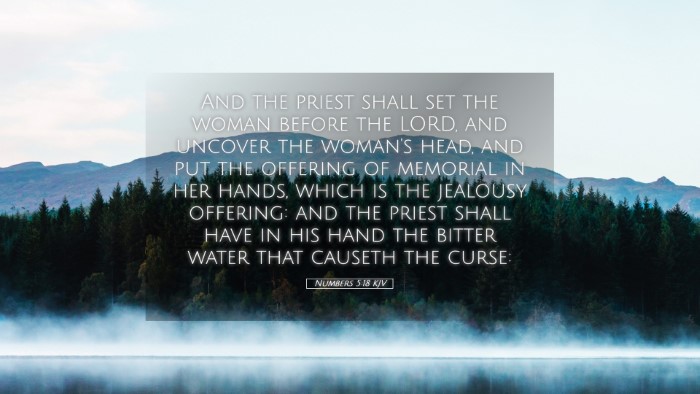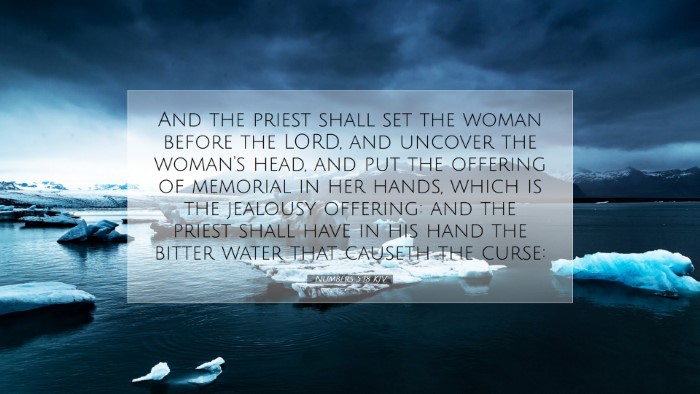Commentary on Numbers 5:18
Verse: Numbers 5:18 - "And the priest shall set the woman before the Lord, and uncover the woman's head, and put the offering of memorial in her hands, which is the jealousy offering: and the priest shall have in his hand the bitter water that causeth the curse."
Introduction
The passage in Numbers 5:18 occurs within the larger context of the laws regarding the wife's fidelity in the Old Testament, specifically in the ritual of the "jealousy offering." This verse highlights several critical elements: the act of the priest, the condition of the woman, the ritual object, and the symbolic implication of uncovering her head. Such rich imagery and function should be unpacked thoughtfully.
Context and Purpose of the Jealousy Offering
The backdrop of this passage is the concern for marital fidelity, encapsulated in the ritual designed for a man who suspects his wife of infidelity. The intention behind the law is twofold: to protect the sanctity of marriage and to serve as a means of divine revelation concerning the woman's guilt or innocence.
- Uneasy Relationships: This passage implies a significant tension between the husband and wife that necessitates divine intervention.
- Divine Justice: The ritual serves as a measure for God to reveal truth, establishing that fidelity and honesty are paramount within the covenant community.
The Role of the Priest
According to Matthew Henry, the priest's mediation is crucial in this process. He acts as an intermediary between God and the woman, which reinforces the sacrificial system's point: atonement for sins comes through a mediator.
Albert Barnes elucidates that the priest performs this ritual not just as a duty but with a weight of responsibility to ensure that the outcomes adhere to divine standards.
Physical and Symbolic Elements
In the act of uncovering her head, there are multiple layers of meaning. Adam Clarke notes that this signifies openness and vulnerability, implying that the woman is laid bare before both God and the community.
- Head Uncovered: A symbol of humility and submission before God.
- Offering of Memorial: The offering represents a desire for remembrance and acknowledgment from God of the woman's position and plea.
The Bitter Water
The "bitter water" represents the trial that the woman must undergo. It serves not only as a test but symbolically embodies the tension of the situation. As Henry comments, it acts as a spiritual barometer of and for the woman's heart.
Clarke posits that the bitter water signifies the seriousness of the accusation and the potential consequences for the woman, should she be guilty of infidelity. This weightiness emphasizes the gravity of both the vow taken and the potential outcome.
Theological Implications
This passage reveals important theological insights regarding God's justice and mercy. Despite the potential harshness of the ritual, it also exemplifies God's care for the community structure and the individuals within it.
- Divine Oversight: God is depicted as intimately involved in human affairs, particularly in the upholding of moral standards.
- God’s Desire for Truth: The ritual highlights God’s desire not to expose individuals for punitive measures, but to reveal truth. This emphasizes God’s ultimate justice and purity.
Conclusion
Numbers 5:18 serves as a rich tapestry of human relationships subjected to divine scrutiny. It not only highlights the gravity of human sin but also illustrates the possibility of redemption and the assurance of God’s presence in communal life. As pastors, students, theologians, and biblical scholars reflect on this passage, it reminds them of the serious nature of fidelity, the intermediary responsibility within the faith community, and the unwavering pursuit of truth and justice in all relational aspects.


